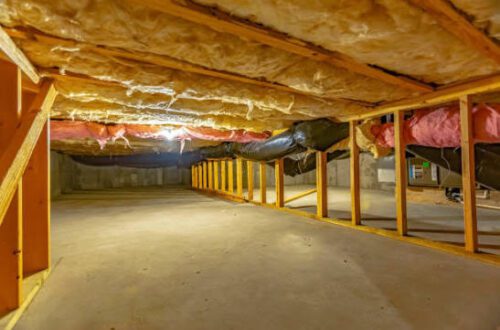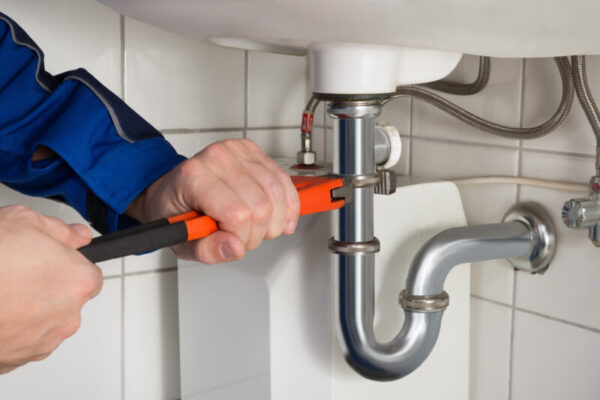Are you considering buying your dream home?
Don’t make the same mistake. Learn what NOT to do when buying a home. Avoid the most common home-buying errors that could cost you money, time, and disappointment.
If you’re considering of buying a house, check out the following guide on common errors in buying a home in safe neighborhoods.
1. Neglecting to Inspect
Home inspections are essential when purchasing a home as they provide the buyer with insight into the condition of the property. Through a home inspection, a buyer can identify any issues that may affect the property before closing, such as structural issues, foundation issues, water damage, or pest infestations.
Without a thorough inspection, it’s not unusual for buyers to find out after the purchase that they have to make expensive repairs and maintenance that they weren’t aware of prior to the purchase. Missing out on home inspections when errors in buying a home can often result in costly repairs or even having to pay for a new home in order to repair the one they already purchased.
2. Skipping Mortgage Pre-Approval
Preapproval is an important step in the home-buying process. It helps you understand what you can afford and what type of loans may be available to you. When you are preapproved for a mortgage, it essentially tells the home seller and real estate agent that you are a serious and creditworthy buyer. To make it easier to get a pre-approval you should know the loan to value of the home you are interested in. To do that you can use this free all things loan to value calculator.
Additionally, not getting preapproved can put you at a disadvantage when competing with other buyers and sometimes result in an awful but costly surprise when the loan is denied after the deal was made. Negotiations and looking at different properties can be much simpler and stress-free when you are pre-approved. Get your preapproval here to get this started.
3. Not Shopping Around
This applies both to the decision to buy a home in general and to the selection and purchase of the particular home you decide to buy. Many buyers fail to explore all of their options, which can lead to spending more than is necessary or missing out on potentially better opportunities that exist.
Doing research to understand what kinds of homes are available, their features and their prices is essential. Comparing homes and corresponding prices is essential to get the best deal. Negotiating the purchase price with the seller is also essential.
4. Not Using an Agent
When errors in buying a home, it is important to understand the process and challenges involved in the transaction. Without the help of an agent, it can be difficult to make sure a financing option is the best for the buyer or what types of contingencies should be included in the contract.
Additionally, buyers may not realize their own clout and power when negotiating terms. Furthermore, it can be difficult to find out about disclosures such as defects in pipes or termites in the home.
5. Lacking Vision
When it comes to buying a home, a lack of vision can lead to a variety of errors along the way. If a buyer does not see the potential of a space, they may end up with a home they don’t love or, worse, one that cannot meet their needs.
It is important to look at the bigger picture to consider how the interior of the property can evolve with changes, such as a new kitchen or knocking down internal walls. A clear vision of how the layout can be changed should be considered in order to avoid any potential pitfalls.
Also, buyers should remember to thoroughly inspect the property before agreeing to purchase, as small flaws can sometimes be missed if not taken seriously.
6. Overlooking Important Flaws
One of the most common errors that an individual might make when buying a home is overlooking important flaws. It’s important to be aware of any potential problems or issues that may arise in the home before buying it and to take the time to inspect the home thoroughly.
Some potential issues that should not be overlooked include steps in the home that may be unstable, plumbing issues that may lead to flooding, electrical problems, and signs of mildew or water damage. Additionally, it is important to get an inspection from a professional to identify any potential issues or flaws that could arise before or after closing on a home.
7. Ignoring the Neighborhood
Buying homes in safe neighborhoods is a big decision, so it’s important that buyers take all factors into consideration. This can range from not doing enough research prior to buying, not taking time to visit the neighborhood, or not getting to know the neighbors before moving in.
Ignoring the neighborhood can lead to unforeseen expenses due to high crime or property value decline, as well as a decrease in quality of life from living in an unsafe area or among unpleasant neighbors. To avoid this mistake, buyers should thoroughly research the area, take the time to visit the neighborhood, and get to know the neighbors before buying a home.
8. Rushing to Put in an Offer
When rushing, it’s unlikely that you’ll have enough time to arrange for a thorough inspection of the property. Conducting the inspection helps you to identify any structural deficiencies or hidden damage before investing.
Also, rushed transactions can lead to inadequate negotiation of the purchase price leading to overpaying for the property. When putting in an offer, be sure to review all of the contractual documents before signing, as rushed transactions can also lead to missing a key term or condition.
Find Out Common Errors in Buying a Home
It is essential to be aware and knowledgeable of the potential issues that you may face when buying a home. To prevent common errors in buying a home, research the property, use a reputable real estate agent, and get the help of an attorney.
Taking the time to protect your purchase will ensure that it is a smooth and successful transaction.
Did you find this article helpful? Check out the rest of our blog for more!





